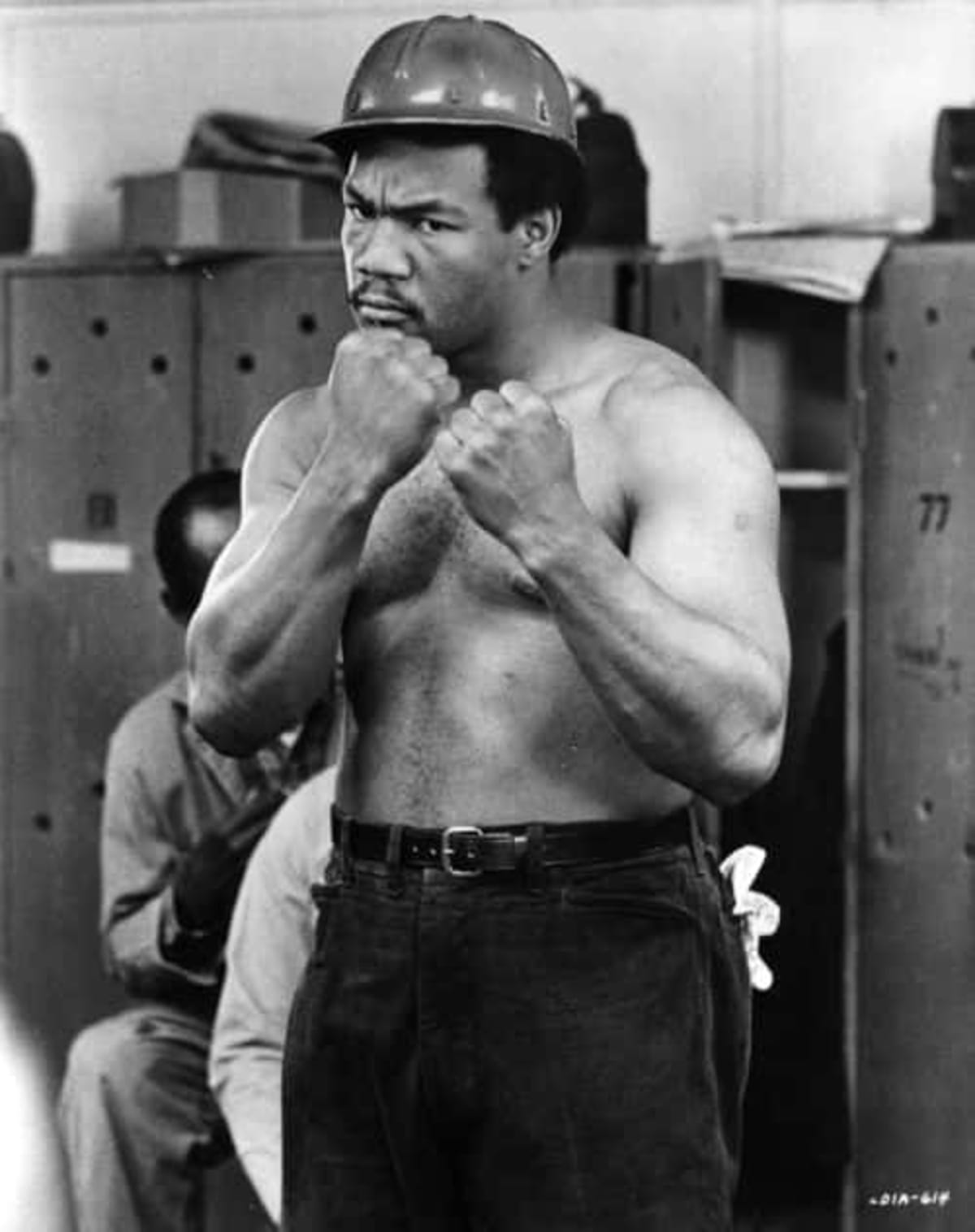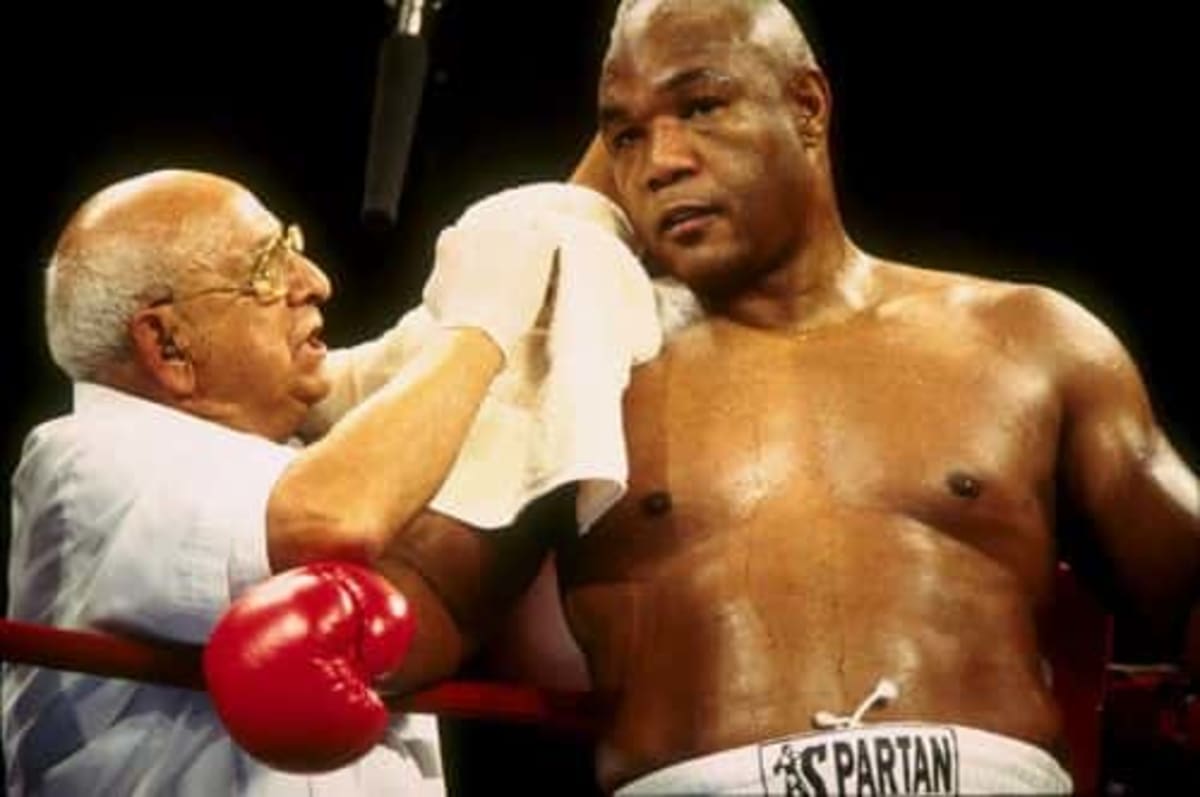On this day in history, November 5, 1994: George Foreman becomes the oldest heavyweight champion

LOS ANGELES, CALIFORNIA: On November 5, 1994, a remarkable moment in the world of boxing unfolded as George Foreman, at the age of 45, achieved the improbable and became the oldest heavyweight champion in the history of the sport.
This historic event occurred in Las Vegas, where Foreman went up against the 26-year-old Michael Moorer in a WBA fight that drew the interest of over 12,000 attendees at the MGM Grand Hotel.
Was George Foreman's defeat by Muhammad Ali momentary setback for remarkable comeback?
George Foreman's journey to this historic victory was nothing short of inspiring, according to History.com.
Born in 1949 in Marshall, Texas, he faced a tumultuous childhood and eventually dropped out of high school.
Foreman's life took a transformative turn when he joined President Lyndon Johnson's Jobs Corps work program and discovered his innate talent for boxing.
Referred to as "Big George," Foreman made a name for himself by clinching a gold medal for the United States at the 1968 Olympics in Mexico City.

In 1973, Foreman's professional career soared as he triumphed in his initial 37 matches, an astonishing 34 of which were achieved by knockout.
He cemented his position as a dominant figure in the boxing world when he knocked out "Smokin' Joe" Frazier in a mere two rounds, thereby securing the heavyweight championship
Nonetheless, the zenith of his career encountered a temporary setback when he confronted Muhammad Ali in the iconic 'Rumble in the Jungle' bout in Kinshasa, Zaire, in 1974.
Despite being younger and more powerful, Foreman experienced an unforeseen defeat to the underdog Ali, resulting in his surrender of the championship title.
Following this setback, George Foreman underwent a significant transformation. In 1977, he experienced a religious awakening in his dressing room after losing a fight.
He decided to retire from boxing, become an ordained minister in Houston, and went on to establish a youth center, channeling his energy into positive and community-building endeavors.
A decade later, Foreman, now in his late 30s, staged a remarkable comeback to the boxing ring. He embarked on an extraordinary comeback journey and achieved a career highlight in 1994 when he regained his heavyweight title by defeating Michael Moorer.
This victory earned him not only the WBA title but also the IBF championship.
Significantly, Foreman donned the same red trunks he wore on the night of his defeat to Muhammad Ali, symbolizing a complete cycle in his career.
What were the factors that led to George Foreman's decision to retire from boxing?
Although George Foreman's triumphant return to the world of boxing was a captivating story, his reign as the heavyweight champion was relatively short-lived.
In March 1995, he had his WBA title stripped from him because of his refusal to compete against the No 1 contender, Tony Tucker.

Subsequently, in June 1995, he voluntarily surrendered his IBF title, citing his refusal to engage in a rematch with Axel Schulz, whom he had narrowly beaten in a contentious judges' decision in April of the same year.
Foreman's ultimate bout occurred in 1997 when he encountered Shannon Briggs and experienced a defeat, concluding his career with an impressive record of 76 wins and 5 losses.
Outside the boxing ring, George Foreman's life took yet another intriguing turn.
George Foreman's transformation into thriving business and television career
The man who has five sons, all named George, and five daughters, went on to become a highly successful entrepreneur and a personable television pitchman for various products.
Most notably, the George Foreman Grill achieved household recognition and became a widely sought-after kitchen appliance, contributing significantly to the financial success of its namesake.
George Foreman's journey from a troubled childhood in Texas to becoming the oldest heavyweight champion in boxing history is a testament to his resilience, determination, and unwavering spirit.
His life story continues to inspire individuals to overcome adversity and embrace new opportunities, making him an iconic figure both in and out of the boxing world.










